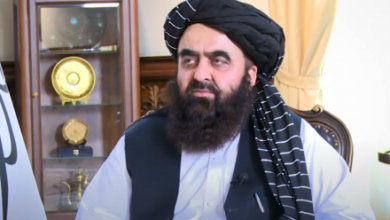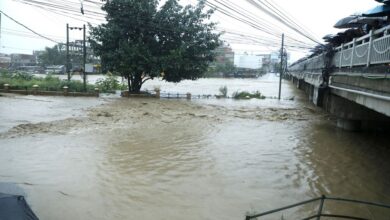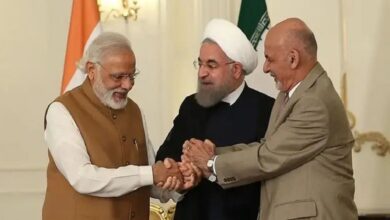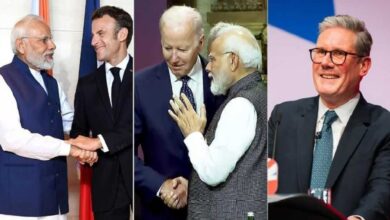Chinese Ambassador Chen Song takes ‘X’ diplomacy to a new level

By Purushottam Poudel
Kathmandu: Historically, Nepal’s two immediate neighbours, India and China, have had their own unique ways of conducting diplomacy with the landlocked country sandwiched between them. While India was known for being a vocal neighbour, the Chinese had their silent diplomacy. But that balance appears to be shifting, as the events of the recent past suggest.
If previously it was the Indian ambassador who was more likely to land in controversy for public statements, that role seems to have been taken by his Chinese counterpart over the past few years.
Take, for instance, Chen Song, the incumbent Chinese ambassador to Nepal. Chen arrived in Nepal on January 8, 2023, succeeding Hou Yanqi. Upon his arrival, Ambassador Chen said that he would work to write “a new chapter” in Nepal-China relations.
“As the new ambassador to Nepal, I am deeply aware of the glorious mission and great responsibility,” Chen told journalists upon his arrival in Kathmandu.
Chen might have been writing a new chapter, but not in the ways the Nepali public had perhaps expected.
Of late, Chen has been noted for his provocative statements and attitude aired through his X account. Not long ago, he issued a challenge to a Nepali journalist to prove his facts concerning interest rates on Chinese loans. He is sometimes seen conversing with accounts of dubious identity. Only this week, his conversation with an X account called ‘Global Ambassador’ raised many eyebrows.
Earlier, he also courted controversy for his public statement on Indian investments in Nepal.
A few Nepalis who are acquainted with Ambassador Chen say he is blunt in his remarks, in a manner polar opposite to his predecessors.
“During my meetings with the present Chinese Ambassador Chen, I have noticed that, unlike his predecessors, he is very frank and speaks bluntly about many things,” a Nepali professor who does not like to be identified told the Post.
Some of his social media posts are also an example of his straight forwardness.
Of late, Ambassador Chen has again been in controversy after his social media remark on the loss of a magnet brought from India to search for two buses and their passengers in the Trishuli river.
A landslide on the Narayanghat-Muglin road on July 12 swept away the two buses, presumably taking the lives of almost 60 people. The buses are yet to be found, and rescue teams to date have only found the bodies of 25 people.
After the Nepali rescue team unsuccessfully attempted to locate the lost vehicle and find the missing people, the Ministry of Home Affairs requested India to send its technical team to search for the missing bus and passengers. At Nepal’s request, India sent a 12-member team of the National Disaster Response Force (NDRF) for the search operation.
The NDRF began the underwater search with two magnets of 19 kg and 14 kg weights each. However, the 19 kg magnet was lost during the search on July 27.
Chinese Ambassador Chen shared news related to the loss of the magnet used in a search operation, and suggested that Nepal should now be searching for the magnet. People quickly responded to his undiplomatic comment.
However, Ambassador Chen does not see any mistakes on his part.
“Shouldn’t the search be facilitated by all means? If a magnet is needed to speed up the search, then find the magnet. Why did people start to think of ending the search when a magnet was lost?” Chen wrote on X.
On social media, users also asked the Chinese ambassador to help Nepal find the vehicles, and some even requested him to facilitate the import of a magnet big enough to make the search effective. In response, the Chinese Ambassador wrote: “We don’t use that technology.”
Regarding his recent social media posts, Nepali Congress lawmaker Ramhari Khatiwada, speaking in the zero hour of Parliament on Tuesday, urged the minister for foreign affairs to summon the Chinese ambassador for an explanation over his posts.
“It would be better for Nepal to get actual help, rather than being mocked over the issue,” lawmaker Khatiwada said. “The Ministry of Foreign Affairs should summon him for clarification.”
Sarvendra Nath Shukla, a lawmaker of the Loktantrik Samajbadi Party, lambasted the Chinese ambassador without mentioning his name.
When the rescue team was engaged in a search operation, the ambassador made a mockery of it by going against diplomatic norms, Shukla said.
Some former ambassadors of Nepal find such engagements of the Chinese ambassador unusual.
“It is inappropriate for any ambassador to comment on the activities of the host country,” Rajeshwar Acharya, a former Nepali ambassador to China, told the Post. “While trying to be active on social media, no ambassador can breach diplomatic decorum.”
Acharya expressed his surprise why a country like China, which is known for its mature diplomacy, is engaging in activities unrelated to it.
“The ambassador’s passing comment on the equipment brought from India to support rescue is against the Vienna Convention of Diplomatic Relations 1961,” Acharya said.
Article 41 (1) of the Vienna Convention states: “Without prejudice to their privileges and immunities, it is the duty of all persons enjoying privileges and immunities to respect the laws and regulations of the receiving state. They have a duty not to interfere in the internal affairs of that state.”
Ambassadors are also ineligible to pass comments on a third country from the land of the host country.
Earlier, Indian diplomats were criticised for voicing their opinions on Nepal’s daily activities. China does not seem to have learned from India’s past mistakes, Acharya said.
It looks like China is trying to engage in public diplomacy, but making comments on every little matter is not the way to do it, he added.
The Chinese Embassy in Kathmandu started using social media starting during the tenure of Chinese ambassador Hou Yanqi. She was highly visible, particularly on Twitter, renamed X, for her posts on Nepal’s cultural activities.




